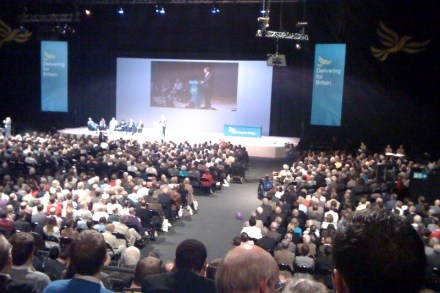Votes and jokes at the Lib Dem conference
The pro AV rally at Lib Dem conference demonstrated the problem with the AV campaign: they don’t think it is the best system. Pam Giddy, chair of Yes! To Fairer Votes, described it as “a small but important upgrade to our electoral system”; hardly the most inspiring campaign slogan. The Lib Dem MP Jo Swinson declared that “in an ideal world … there’d be a majority for STV”. Nick Clegg received a standing ovation and his speech went down well. He joked that one benefit of being in coalition with the Tories was “that he could no longer be accused of being the poshest man in the room” and that



















